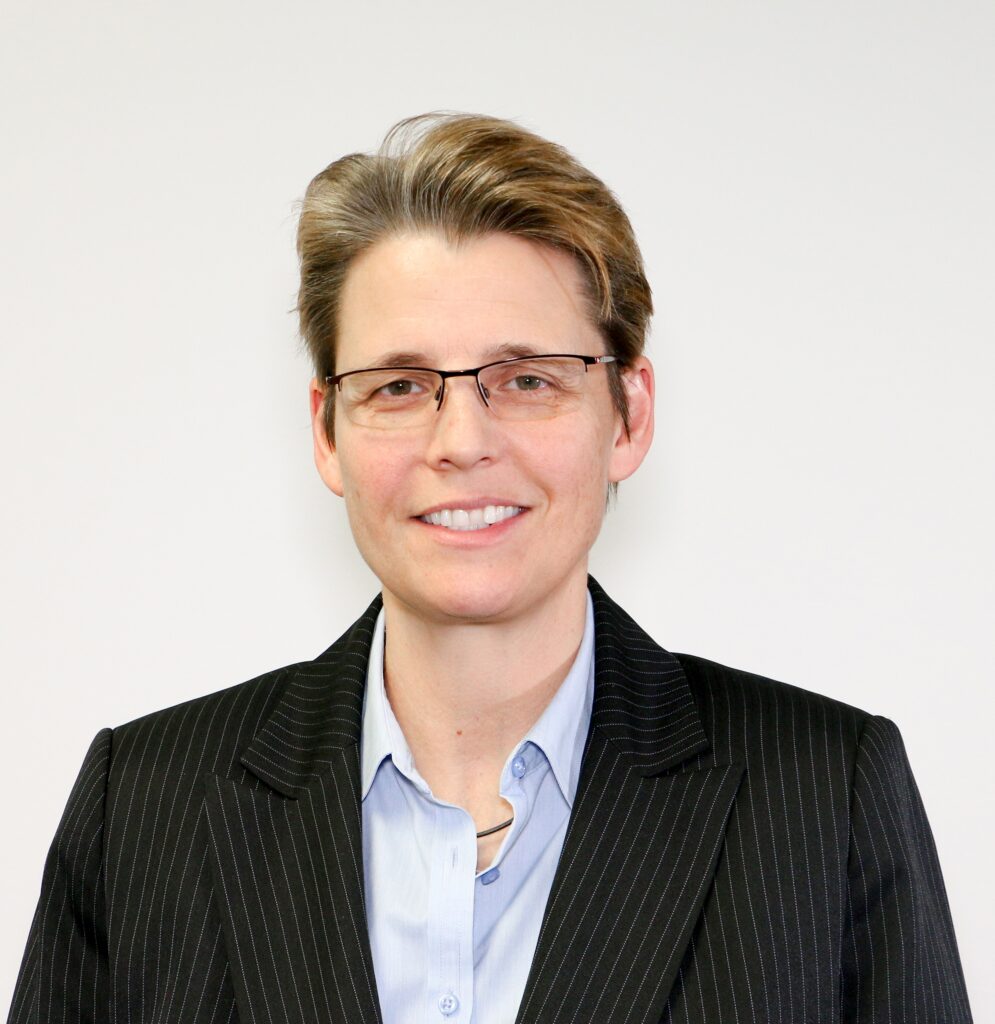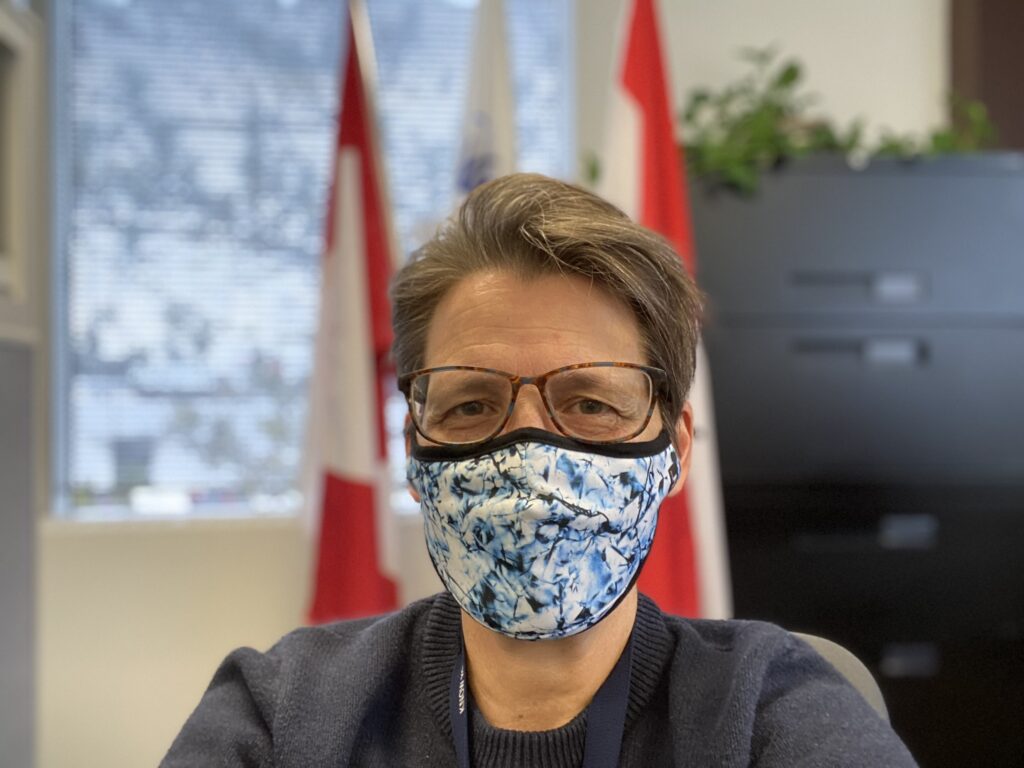DIACC is hosting a series of spotlights showcasing our amazing female DIACC members in the digital identity space, noting the importance of diversity. These spotlights will be regularly socialized through DIACC’s LinkedIn and Twitter channels as well as our monthly member newsletters.
If you’re a DIACC member and would like us to feature your spotlight, contact us today to learn more!
How long have you worked in your sector, and in your current position?
I have been in the tech industry for over 25 years in a variety of companies providing every type of software solution from graphic signage design tools, to Operating Systems, to 3D instrumentation clusters for avionics, to remote identity and document verification. I joined WorldReach Software, in the role of Director of Marketing, 11 years ago. I’ve loved every minute of it!
WorldReach, for those who have never heard of us, uses innovative processes and technology to verify you are who you say you are. We enable highly trusted digital services through our systems for government (borders, immigration, passport and consular) for digital on-boarding, safe and seamless travel, and digital Identity verification and corroboration.
We are probably best known for the core digital channel solution behind the UK Home Office’s EU Settlement Scheme. This smartphone based digital ID Verification (IDV) and enrolment capability has become the world’s most successful immigration programme of its kind with over 5 million completed applications to date!

What has your career journey looked like? Have you always worked in the private sector?
My career path has been so varied my general joke is “You can’t get here from there”. My educational background is in Fine Art. In fact, I have a painting in the Parliament Buildings. The short answer (which is not actually that short) is Fine Art led to Freelance Illustration, which led to Graphic Design, which led to Marketing Management in a software company. This opened me up to a much more technical path – first to Strategic Alliance Management for the Embedded OS market, then to Industry Segment Management, then to Product Management, then finally back to what I would term “Technical Marketing”.
I have always worked in the private sector, however for more than the last decade, I have been working exclusively in B2G. This has meant that one of my primary goals today is to understand all the challenges, wants, needs and technical requirements of the public sector. WorldReach clients are Governments from all over the world: Ministries of Foreign Affairs, Immigration and Border Agencies, but also any department with a citizen service role. Therefore, I spend the majority of my time researching Government digital service delivery program requirements worldwide.
When you were twenty years old, what was your dream job, and why?
Given my artistic DNA, it likely will not be that surprising to hear that my dream job would have been to be a conservator in a prominent museum – someone who spends all their days cleaning, repairing, protecting and conserving incredible works of art. That would have been the perfect combination of my love of art, art history and my annoyingly anal-retentive detail-oriented skillset. Either that or I would have loved life as a professional soccer player! Even in my early twenties, I did not envision a long career in technology.
As a female leader, what has been the most significant barrier in your career?

Externally – being taken seriously. As a woman in the male-dominated tech field over the last quarter of a century, one often hears this. For me personally, also being an openly gay woman adds an additional nuance to climbing the corporate ladder. I have unfortunately experienced homophobia from co-workers and management a few times in a few companies in the past, but I am happy to report that that appears to be in the rear view mirror for me. Still, it is a reminder of why we all need legal protections against discrimination in the work place and employment strategies focussed on diversity and inclusion.
Internally – overcoming the nagging doubt that you do not “belong in the room where it happens”. No matter how much experience you have in a certain industry, women tend towards the infamous “imposter syndrome”. Once you push that aside – and maybe that just comes with growing older and wiser – it really does become far less of a barrier. Belief in oneself goes along way to harnessing your own potential.
How do you balance work and life responsibilities?
Early in my career, I had to step away and become the main support for my incredibly ill child. As a mother, of course, that’s would you do, and what you want to do – there was no question. However, it also helps put things into perspective. There are always things in ones’ life that are more important than work. My son is now 33 years old and cancer-free, thankfully.
In the fast moving, highly competitive tech world, one’s work life can easily take over every waking hour – especially now, during COVID, when many of us are working from home. The boundaries can get very fuzzy. Nevertheless, it is still incredibly important to ensure you understand the crucial role of self-care. If you are exhausted, if you work around the clock, every aspect of your life will suffer – and that includes work.
I personally need physical activity. A long walk with my wife, friends and loved ones, working out in my basement gym, playing with my dogs – it all helps this balance ‘dance’.
How can more women be encouraged to pursue careers in the tech space?
Women can do anything, but sometimes we need permission to dream big. I think the media can play a big role in this as well. Girls and women need to see people just like themselves succeeding. They need to hear the ups and downs of real-world tech careers. They need to think, “If she can do it, maybe I can too!” Let’s just celebrate all the incredible women in tech much more often!
I also think more needs to be done in our educational system. More female guest speakers to come into classes (virtually or physically) and share their journeys, especially in STEM. Perhaps more mentor initiatives. I know I would have loved to participate in anything that showcased successful women particularly in traditionally male-dominated jobs. To show how fascinating and rewarding delving into technology can really be. To imagine yourself having an effect on the systems that are being built now and in the future. To take pride in creating, in innovating. It took me far too long to discover this on my own.
What are some strategies you have learned to help women achieve a more prominent role in their organizations?
Do not be afraid to take up space. Do your homework and use your voice confidently. Be respectful and open, but do not apologize for everything.
A very good friend of mine gave me some great advice when I was in middle Management struggling to climb. She reminded me “perception is reality”. In the corporate world, you can be a wonderful capable worker, quite talented, but if the people in charge do not see it or know it, you will remain in the very same place but just with an ever-increasing workload. So – Volunteer for projects that will “stretch you”, that will require you to grow and learn, that will be seen. Be helpful and kind to all your colleagues, contacts and teammates. Go out of your way to lessen their workload, to be a person of value. Soon, it will be others that will be singing your praises – you will not have to!
If Senior Management do not value you in title, responsibilities and compensation, do not be afraid to leave and find it elsewhere. Have confidence in your own value.
What will be the biggest challenge for the generation of women behind you?
As the next generation of women begin to earn their way into more and more powerful positions, it will be easy to forget how hard the fight has historically been for the generation before them. Look back and learn. Look to the other successful women in the industry. You don’t have to reinvent the wheel.
One of the biggest challenges these women will face is to recognize when their own drive and competitiveness becomes destructive. You cannot sustain being a “superwoman”. We are all human…and this where work/live balance is so important.
What advice would you give to young women entering the field?
Use your own natural talents to the best of your abilities; apply it to your passion and cultivated it. Whether that is being detail-oriented, analytical, a problem solver, purely creative, a team player or combinations of all of them. Know there is value in it all.
There is a misconception that there is only one type of person in STEM. An engineer, a scientist, a developer, a mathematician – only a linear thinker. Women often bring a different perspective, a different way of thinking and solving problems. A creativity. This variation, this diversity of thought is a necessity to produce the best most inclusive results – and the most interesting people!

Shelley Bryen is the Director of Marketing at WorldReach Software